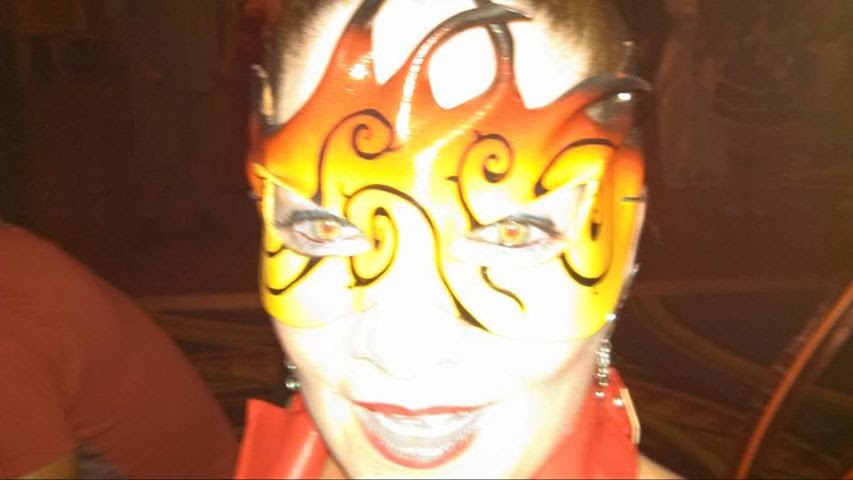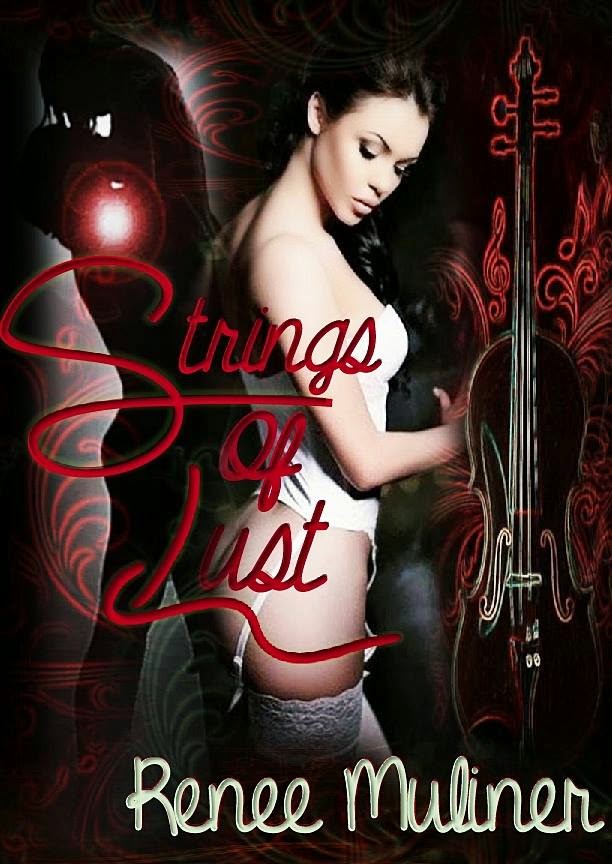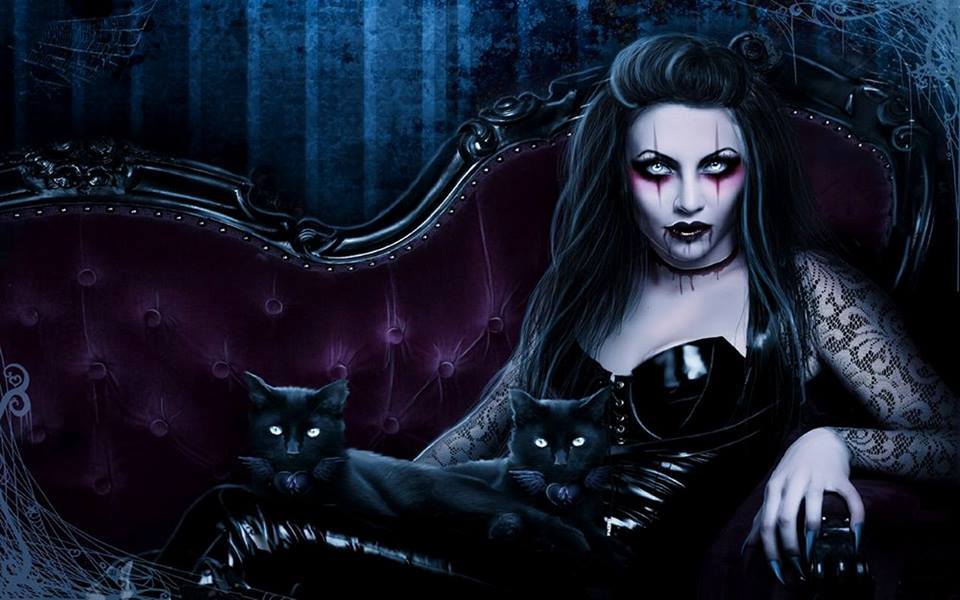The Wild Princess:
a Novel of Queen Victoria's Daughters
by Mary Hart Perry
To the court and
subjects of Queen Victoria, young Princess Louise—later the Duchess of
Argyll—was the “Wild One.” Proud and impetuous, she fought the constraints
placed on her and her brothers and sisters, dreamed of becoming an artist, and
broke with a three-hundred-year-old tradition by marrying outside of the
privileged circle of European royals. Some said she wed for love. Others
whispered of a scandal covered up by the Crown. It will take a handsome
American, recruited by the queen’s elite Secret Service, to discover the truth.
But even as Stephen Byrne— code name the Raven—vows to risk his life to protect
the royal family from violent Irish radicals, he tempts Louise with a forbidden
love that could prove just as dangerous.
In the vein of Philippa Gregory, Mary Hart Perry tells the
riveting story of an extraordinary woman—a princess who refused to give up on
her dreams, including her right to true love.
Coming August 1, 2012 from Avon
Books
ISBN:
9780062123466
Twitter: @Mary_Hart_Perry
Find Mary Hart Perry on Facebook
Victorian,
the new Regency!
Osborne
House, Isle of Wight
Wednesday,
January 23, 1901
My
dearest Edward,
I write to you with a
grieving heart. My emotions are so a-jumble at this moment I can barely stop my
hand from trembling long enough to put pen to paper. As all of London wakes to
the sad news, you too must by now be aware that Victoria, Queen by the Grace of
God of the United Kingdom of Great Britain and Northern Ireland, Defender of
the Faith, Empress of India—my mother—has passed from this life. Last night I
stood at her bedside along with my surviving sisters and brothers, the many
grandchildren, and those most favored among her court. We bid our final
good-byes, and she drifted away. Among us was the devoted Colonel the Lord
Edward Pelham-Clinton, who delivers this letter and accompanying documents, by
hand, into your possession.
The doctors say it was a cerebral hemorrhage,
not uncommon for a woman in her 80’s, but I believe she was just tired and
ready to rest after reigning these tumultuous sixty-four years, many of them
without her beloved Prince Consort, Albert, my father, who died before you were
born.
She was not a physically affectionate mother,
demanded far more than she ever gave, often drove me to anger and tears, and
very nearly destroyed my life…more than once. Yet I did, in my own way, love
her.
The enclosed manuscript
is my means for setting straight in my own mind the alarming events of several
critical years in my life. But more than that, it will bring to you, although
belatedly—and for that I apologize—the
truth. Your mother, my dearest friend, wished to tell you of these matters
long ago. Indeed, it was she who compiled most of the information herein, using
her rare skills as an observer of human nature and, later in life, as a gifted
investigative journalist. I have filled in the few facts she was unable to
uncover on her own. For selfish reasons I begged her to keep our secrets a
while longer…and a while longer. Then she too departed from this world for a
better one, leaving no one to press me to reveal these most shameful deeds.
Indeed, Edward dear, I would not even now strip bare the deceptions played out
in my lifetime, had they not so intimately involved you.
Do these words shock
you? If so, then you had best burn these pages and live the rest of your life
in ignorance. But as I remember, you were a curious lad, and so I expect you
will read on. However, before you go further, I must ask of you a solemn favor.
What I am about to reveal is for your knowledge alone, that you might better
understand both the gifts and the sins passed along to you. To share this
account with others would cause scandal so damaging that our government would
surely topple. Therefore, I implore you to choose—either destroy the enclosed
manuscript this instant without reading it, or do the same after reading in
private.
Regardless of your decision, I pray you will
ever think of me as your devoted godmother and friend, and not hate me for the
things I have done to protect you or, on my own behalf, simply to survive.
Be assured of my love,
Princess Louise, duchess of Argyll
March
21, 1871—Windsor Castle,
St. George’s
Chapel
Under siege, that’s what
we are,
Louise thought as she observed the mayhem beyond the church’s massive oak
doors. Indeed the week-long crush of boisterous visitors had become truly
dangerous.
“There must be thousands of them,” she murmured,
more to herself than to any of her bridesmaids clustered around her.
Her brother Bertie gently closed the door,
shutting out the cheers of the crowd. “It’s all right. The guardsmen have
things well in hand.”
Scores of well-wishers from London and the surrounding countryside had
arrived on foot and horseback, along with souvenir vendors, draysmen with
cartloads of sightseers and hawkers of ale, roasted potatoes and meat pies.
They clogged Berkshire’s country roads, converging on Windsor, making virtual prisoners of the
royal family and their guests within the great castle’s walls.
Many travelers hadn’t been content with a
tourist’s hasty view of Windsor
in the days before the wedding. They’d set up crude campsites outside the
walls, lit bonfires that blazed through the night. Toasts to the bride and
groom turned into drunken revelry. Hundreds pressed against groaning castle
gates, hoping for a chance glimpse of the royal couple. Crowd control, never
before an issue at a royal wedding, became a necessity. A nervous Queen Victoria called up her
Hussars and a fleet of local constables to reinforce the castle’s guardsmen.
Louise stepped away from the chapel’s doors,
fingering the delicate Honiton lace of her gown. Strangely, she wasn’t worried
about being hurt by the mob of well wishers. What concerned her was what her
mother’s subjects might expect of her.
To do her duty as a princess, she supposed,
whatever that might mean to them. Or simply to “be a good girl and don’t make
trouble,” as her mother had so often scolded her since her earliest years.
Standing at the very foot of the church’s long
nave, Louise tried to reassure herself that all the pomp and fuss over her
marriage was of no consequence. It would pass with the end of this day. The mob
would disperse. The groundsmen clear away the mountains of trash. The important
thing was—she had agreed to wed the marquess of Lorne as her mother wished. She
was doing the responsible thing for her family. Surely, all would be well.
Louise rested her fingertips lightly on Bertie’s
arm. The Prince of Wales stood ready to escort her down the aisle. She
desperately wished her father were still alive to give her away. On the other
hand, Papa might have talked her mother into letting her wait a little longer
to marry. But, of the six girls in their family, it was her turn. In the
queen’s mind, Louise at 23 was already teetering on the slippery verge of
spinsterhood. An unwed, childless daughter knocking about the palace was a
waste of good breeding stock.
Louise felt Bertie step forward, cued by the
exultant chords of organ music swelling to the strains of the Wedding March’s
intricate harp obbligato. She matched his stride, moving slowly down the long
rose petal-strewn quire toward her bridegroom.
Another trembling step
closer to the altar, then another. Wedding night jitters? Was that the source of
her edginess?
Definitely not. The panic swelling in her breast
could have little to do with a bride’s fragile insecurity regarding her wifely
duties in bed. Louise felt anything but fragile and more than a little eager
for her husband’s touch. Nevertheless, she sensed that something about the day
was disturbingly wrong. Sooner or later, she feared it would snap its head
around and bite her.
She closed her eyes for a few seconds and drew
three deep breaths while letting her feet keep their own pace with the music.
“Are you all right?” Her brother’s voice.
She forced a smile for his benefit. “Yes,
Bertie.”
“He’s a good man.” The Prince had trimmed his
dark mustache and looked elegantly regal, dressed in the uniform of their
mother’s Hussars. He had initially stood against the marriage, believing his
sister should hold out for a royal match. But now he seemed resigned and loath
to spoil her day.
“I know. Of course he’s good.”
“You like him, don’t you?” Not love him. They both knew love didn’t
enter into the equation for
princesses. The daughters of British royals were bred to marry the heads of
state, forge international alliances, produce the next generation to sit upon
the thrones of Europe.
“I do like him.”
“Then you’ll be fine.”
“Yes,” she said firmly. “I will.” Somehow.
Three of her five bridesmaids—all in white,
bedecked with garlands of hothouse lilies, rosebuds, and camellias—led the way
down the long aisle, leaving the two youngest girls in Louise’s wake to control
the heavy satin train behind her. The diamond coronet Lorne had given her as a
wedding present held in place the lace veil she herself had designed.
She felt the swish of stiff petticoats against her
limbs. The coolness of the air, captured within the church’s magnificent
soaring Gothic arches, chilled her bare shoulders. Yards upon yards of precious
hand-worked lace, seemed to weight her down, as though holding her back from
the altar. An icy clutch of jewels at her throat felt suddenly too tight,
making it hard to breathe.
Her nose tingled at the sweet waxy scent of
thousands of burning candles mixed with perfume as her guests rose to view the
procession. The pulse of the organ’s bass notes vibrated in her clenched
stomach. Ladies of the Court, splendid in silks and brocades and jewels, the
gentlemen in dignified black or charcoal grey frock coats, turned heads her way
in anticipation—a dizzy blur of smiling, staring faces as she passed them by.
But a few stood out in sharp relief against the
dazzling splendor: Her dear friend, Amanda Locock beside her handsome
doctor-husband, their little boy wriggling in Amanda’s arms. The always dour
Prime Minister Gladstone. A grim-faced Napoleon III, badly reduced in health
after his recent defeat by the Prussians. Her brothers and sisters: Affie, then
Alice and Vicky with their noble spouses. A predictably bored looking Arthur,
always solemn Lenchen and young, fidgety Leo. Bertie’s lovely Danish wife Alix
clasped a hand over each of their two little boys to keep them quiet.
Louise lifted her gaze to the raised box to her
left where she knew her mother would be seated. Beatrice, youngest of Louise’s
eight siblings, sat close by the queen, gazing down wide-eyed at the ceremony.
Victoria herself, a plump figure in black mourning muslin six years after her
husband’s death, her grim costume relieved only by the rubies and blues of the
Order of the Garter star clipped over her left breast, looked down on the
wedding party as though a goddess from Mount Olympus.
They’d all come to witness Louise’s union with
the striking young man waiting for her at the chapel’s altar. The marquess of
Lorne. John Douglas Sutherland Campbell. A stranger to her in many ways, yet
soon to be her wedded mate. Beside him
stood his kinsmen in striking Campbell-green kilts, sword scabbards strapped to
hips, hats cocked forward.
Louise felt an almost equal urge to rush into
her intended’s arms…and to turn around and run back out through the chapel
doors. Into the fresh spring air, breaking through the crowd to escape down Windsor’s famous Long
Walk and into the countryside. To freedom.
But was that even a possibility now?
All of the country had lapped up news of her
betrothal as eagerly as a cat does cream. Hadn’t the newspapers been chock full
of personal details for months? The chaperoned carriage rides through Hyde Park. The elaborate French menu for the wedding
feast. Everything, from the details of her gown to advertisements placed by a London perfume
manufacturer announcing their newest fragrance, Love-Lorne, had been gossiped about in and outside of the Court.
And then all of that fled her mind as Bertie
deposited her before the archbishop and beside Lorne. Her husband-to-be stood
breathtakingly handsome in his dark blue dress uniform of the Royal Argyllshire
Artillery with its bits of gold braid, burnished buttons, and shining black
leather boots that shaped his long legs to above the knees. A silver-hilted
sword hung from the wide black patent belt that encircled his narrow waist. His
hair, a glorious pale blond mane brushed back from his face, long enough to
feather over his collar, looked slightly risqué and tempted her fingertips.
He took her hand in his. At his touch, she
finally settled inside herself.
During the ceremony Louise was aware of her
bridegroom’s eyes turning frequently to her. She did her best to meet his gaze,
to bring a little smile to her lips and hope that some of it slipped into her
eyes for him. Like her, he had blue eyes. But, while hers were a soft shade,
the mesmerizing sapphire brilliance of the young marquess’s eyes never failed
to startle people on meeting him for the first time. He was a Scot, one of her
mother’s northern subjects. When his father passed, he would become the duke of
Argyll. A minor title, but better than none at all in her mother’s view. For
Louise’s part, titles were of no consequence. They marked a man as neither good
nor bad, kind nor cruel, rich nor poor.
She had every reason to believe they’d get along
well, even though they’d not once been left alone together. Still, their
escorts had been discreet, allowing them to speak freely. Lorne had even shyly
kissed her on the cheek, last night. In time, they might fall in love. She’d
like that. And even if they didn’t, he would give her the children she so
longed for. Life was full of compromises.
The archbishop was speaking in that sing-song
voice of his that was at once soft yet somehow carried to the very back of the
grandest church. Louise let the words wash over her, a warm and calming stream.
She daydreamed of her honeymoon—Lorne making tender love to her, his soft hands
opening her gown to touch the places on her body that most longed for his
caresses. And she would discover ways to please him.
The images in her mind brought a rush of heat to
her cheeks. She raised her eyelashes shyly to glance up at him in anticipation.
Their gazes met.
He grinned and winked. Did he know what she was
thinking?
It was at that moment something odd caught her
eye. A motion off to her left and above. Startled, she turned her head just far
enough to take in her mother’s box.
John Brown, once a lowly ghillie in the queen’s
stables at Balmoral in Scotland,
and now her personal attendant and self-appointed bodyguard, stood behind Victoria physically
blocking a man who seemed to be trying to force his way into queen’s box. A
frisson of alarm shot through Louise.
“Steady,” Lorne whispered in her ear, grasping
her hand. “Brown’s handling it.”
The archbishop, too, seemed to have noticed the
disturbance, but he droned on, the ultimate performer under pressure.
Louise glimpsed Victoria waving off Brown. The stranger bent
down as though to whisper something in the queen’s ear. He wore rough riding
clothes, a long dung-brown overcoat of a less than fashionable cut, in what
appeared to be scuffed leather. He looked unshaven. As if he hadn't bothered to
even run a comb through his spiky black hair. In one hand he held not a
stove-pipe top hat that was the only acceptable headwear for a gentleman in
London—but a strange wide-brimmed style of black felt hat she’d never seen on
any head in all of England.
Louise turned back to face the bishop, fearful
of missing the rest of her own wedding. The next time she glanced back, the
stranger had gone.
Lorne squeezed her hand, as if to say, All is well.
Was it? She shivered but forced a smile in
return.
Then all at once, the archbishop was giving them
his blessing. A joyous “Hurrah!” rang out in the chapel. Her new husband kissed
her sweetly on the lips, and every concern fled her mind at this excruciatingly
joyful moment.
All she could think of was the night that lay
before them—her first night as a married woman.
Mary Hart Perry lives in Maryland
with her husband and two feline writing partners: Miranda and Tempest. She
teaches at The Writer's Center in Washington, DC and is an inspiring speaker
for international and regional organizations interested in the joys of history
and fiction writing. She is an advocate for teen and adult literacy. You can
reach her at Mary@MaryHartPerry.com. She invites you to "like" her Facebook page and
follow her on Twitter @Mary_Hart_Perry.









 An amazing story! Definitely a keeper.
An amazing story! Definitely a keeper.
 A must read. A good page turner.
A must read. A good page turner.
 A enjoyable read. An average book.
A enjoyable read. An average book.
 A book that has flaws and is hard to finish.
A book that has flaws and is hard to finish.
 Terrible and couldn't finish it.
Terrible and couldn't finish it.













2 comments:
Thank you for hosting Mary Hart Perry today!
So glad you could be here, Vickieann! And thank you so much, Danielle for hosting me. I love your blog! Hugs, Mary
Post a Comment
Each of my followers mean the world to me and I would love to hear from each and every one of you.
:)